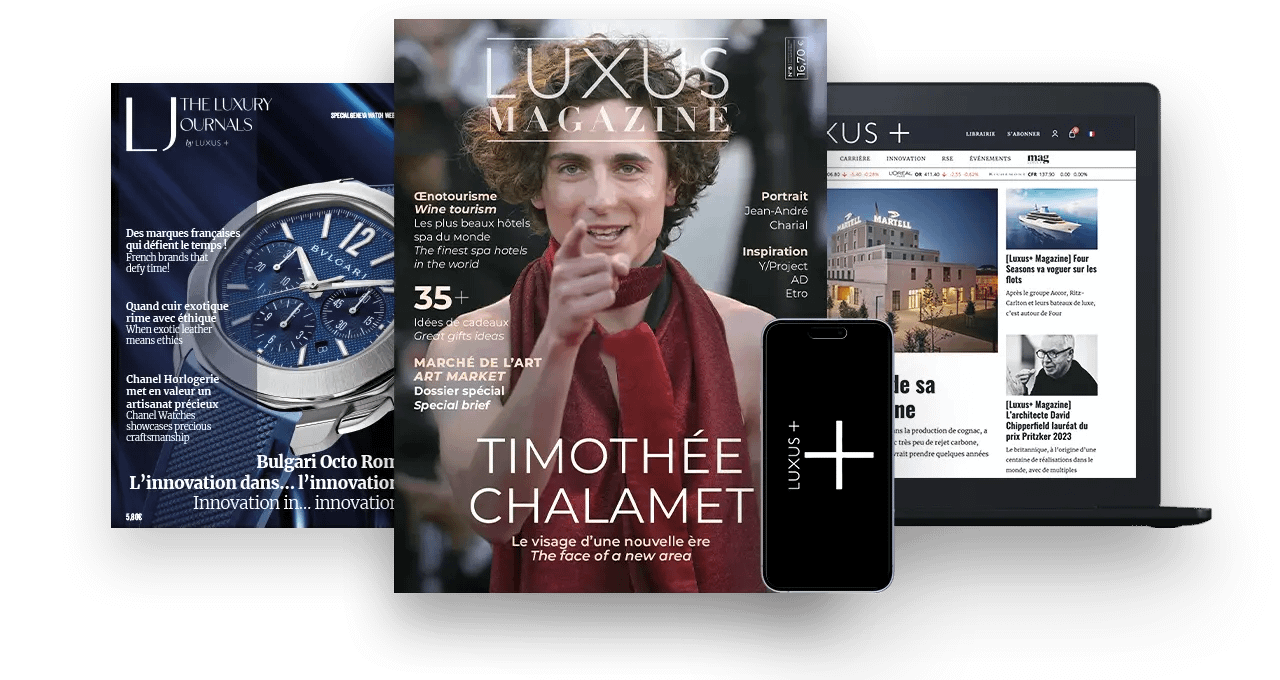The two American luxury groups, owners of Michael Kors, Versace and Jimmy Choo (for Capri) and Coach, Kate Spade and Stuart Weitzman (for Tapestry) respectively, are defending the proposed takeover of the former by the latter in a lawsuit. The country’s anti-trust authorities are opposed to the merger, which they consider likely to create damaging dominance in the accessible luxury bag segment.
John D. Idol, CEO of Capri holdings, was the first to testify in Manhattan, on September 9, at the launch of the antitrust trial that will be decisive for the future of his group, its current competitor Tapestry and, to a certain extent, American luxury goods…
The hearing, which will be completed in two weeks’ time, will determine whether Tapestry’s takeover of Capri can go ahead or not…
The FTC (Federal Trade Commission) is opposed to Tapestry’s planned $8.5 billion acquisition of Capri, which they announced in the summer of 2023.
The American antitrust authorities fear that the combination of Tapestry’s respective brands -Coach, Kate Spade and Stuart Weitzman- and Capri’s -Michael Kors, Versace and Jimmy Choo- could lead to a dominant position in accessible luxury, detrimental to consumers and employees.
Capri CEO John D. Idol announced his “intention to vigorously defend this case in court alongside Tapestry”.
Opening arguments
As the trial got underway, the parties were able to present their respective arguments to Judge Jennifer Rochon during opening arguments. This is the first antitrust trial for Judge Rochon, who was appointed by Jo Biden and took office in 2022.
John D. Idol (Capri) emphasized that this merger would restore color to Michael Kors, an “iconic but struggling House”. He recalled the glorious year in 2016, when one in seven women wore a Michael Kors bag on New York’s Fifth Avenue and the brand posted sales of $4.7 billion.
Since then, faced with competition from European luxury brands and entry-level bags, the brand has lost considerable ground, with sales down to $3.5 billion in fiscal 2023-24 (ending March). And on days when John D. Idol sees one woman in 200 wearing a Michael Kors bag, he considers himself “lucky”.
Headwinds
Beyond the case of Michael Kors alone, the creation of the new group would give new impetus to its various Houses at a time when the luxury goods market, and the American market in particular, are facing headwinds.
For its part, the FTC has asked the judge to impose a preliminary injunction on the takeover. This would freeze the operation pending the Federal Commission’s trial and appeal. Since the latter could take months or even years, the merger project would be nipped in the bud.
Why is the FTC so relentless in its opposition to this project, which would nonetheless give American luxury a Champion, albeit one nowhere near the size of the sector’s Number One?
An American luxury champion
According to research firm GlobalData, the merger would create the fourth-largest luxury goods group in the world, and the second-largest in America, far behind Lvmh. Its combined sales would exceed $12 billion… Lvmh, for its part, generated 86 billion euros ($95 billion) in 2023, but on a much broader perimeter than that of Fashion and Leather Goods alone.
The new American player would employ over 33,000 people and be present in 75 countries.
Following the announcement of the deal, Joanne Crevoiserat, Tapestry’s CEO, saw “apowerful new global luxury house, offering a unique opportunity to deliver greater value to our customers, employees, environments and shareholders around the world”.
A threat to consumers and employees?
But Nicole Lindquist, the FTC’s lawyer, doesn’t see things in the same light at all. In her opening statement on September 9, she argued that “ working- and middle-class women” would be harmed by the merger, while, according to her, more than half of Coach and Michael Kors customers earn less than $75,000 a year.
According to her estimate, the acquisition would bring together more than half the market for bags positioned in the affordable luxury segment. And it would threaten not only consumers, but also the jobs of employees at both companies.
For Tapestry’s lawyer, Lawrence Buterman, this reasoning is “completely disconnected from reality”, citing competition from “hundreds and hundreds” of brands on the American market, from new and used bags from premium and luxury brands “to Trader Joe’s viral mini-tote for $2.99”.
A $10-15 billion market
According to TD Cowen analysts, taking into account the most important brands, Coach today holds 11% and Michael Kors 9% of the US market for affordable luxury handbags (priced at an average of $150). They estimate the size of this market at between $10 and $15 billion.
It remains to be seen which party will be the most convincing.
According to Bloomberg, investors are betting on the successful completion of the Tapestry-Capri deal. On Monday September 9, the first day of the hearing, Capri shares closed up 5.1% at $36.55. Tapestry offered to buy out its rival for $57 per share.
A first in the fashion industry
The Capri-Tapestry deal is both a first and a last for the Biden administration. It is the very first antitrust case brought by FTC Chairwoman Lina Khan in the fashion industry.
But it will also be the very last judicial opposition to a merger project under Jo Biden’s tenure. Since taking office, the Democratic President has demonstrated his willingness to enforce antitrust laws severely.
A number of mergers in various sectors (IT, distribution, etc.) have thus found themselves in the FTC’s crosshairs. But the FTC did not always win the day: despite its opposition, Microsoft Corp. succeeded in buying video game developer Activision Blizzard Inc. for $69 billion. On the other hand, the FTC succeeded in blocking Illumina Inc’s takeover of Grail, both biotechnology start-ups.
Read also > Tapestry and Capri Holdings post contrasting results
Featured Photo: © DR






































